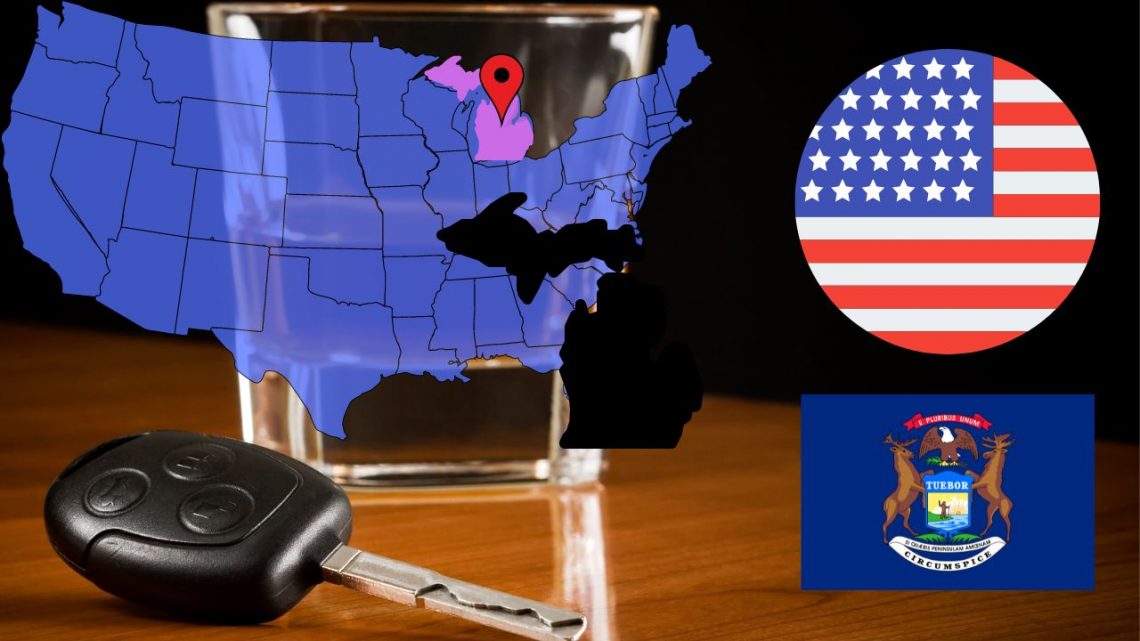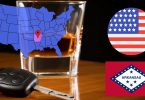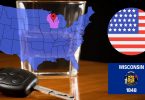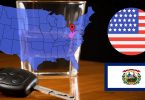In Michigan, driving with a blood alcohol content (BAC) exceeding 0.08% (80 ml of alcohol per 100 ml of blood) for individuals over 21, and 0.02% (20 ml of alcohol per 100 ml of blood) for those under 21, is against the law.
This article aims to educate readers regarding drunk driving laws in Michigan. This page does not endorse or promote driving while intoxicated in any state or region.
What is the legal alcohol limit for driving in Michigan?
In Michigan, the legal alcohol limit for driving varies depending on the driver’s category. Each category has a specific blood alcohol content (BAC) threshold that must not be exceeded to comply with state laws. Below are the legal limits for different categories of drivers:
- Regular Drivers: 0.08% BAC (80 ml of alcohol per 100 ml of blood)
- Commercial Drivers: 0.04% BAC (40 ml of alcohol per 100 ml of blood)
- Drivers Under 21: 0.02% BAC (20 ml of alcohol per 100 ml of blood)
These limits are in place to enhance road safety and reduce the risks associated with impaired driving.
Drink and Drive Penalties and Punishments in Michigan
In Michigan, operating a vehicle under the influence of alcohol or drugs is taken very seriously. The law sets forth specific blood alcohol content (BAC) limits, and exceeding these limits can lead to severe penalties. Here’s a breakdown of what drivers need to know about drink and drive penalties and punishments in the state:
- For Drivers Over 21: It’s illegal to drive with a BAC of 0.08% or higher.
- For Drivers Under 21: The legal limit is much lower, at 0.02%.
- High-BAC Offenses: Michigan also enforces a high-BAC law, imposing enhanced penalties for those caught driving with a BAC of 0.17% or higher.
Costs and Consequences of a Drunk Driving Conviction
-
For BAC Below 0.17% (First Offense):
- Up to $500 fine
- Up to 93 days in jail
- Up to 360 hours of community service
- Up to 180 days license suspension
- 6 points on a driver’s license
-
For BAC 0.17% or Higher (First Offense):
- Up to $700 fine
- Up to 180 days in jail
- Up to 360 hours of community service
- Up to one year license suspension
- 6 points on a driver’s license
- Mandatory alcohol treatment program
- Ignition interlock requirement
Refusing a breath test leads to an automatic one-year driver’s license suspension for the first offense, and a two-year suspension for a second refusal within seven years.
Convicted drivers also face a $1,000 penalty for two consecutive years under the Driver Responsibility Act, totaling $2,000 in additional costs.
Given the serious implications of drunk driving, it’s essential to stay informed about the latest laws and regulations. Michigan residents are encouraged to frequently check the official state’s website for updates on drink and drive penalties and laws to ensure compliance and make safer choices.
How Can I Calculate if My Alcohol Blood Limit is Legal in Michigan?
In Michigan, as in the rest of the United States, the legal blood alcohol content (BAC) limit for drivers over 21 is 0.08%, with lower limits for commercial drivers (0.04%) and drivers under 21 (0.02%). To enforce these limits, police use breathalyzers and blood tests to measure a driver’s BAC. These methods are considered the standard for determining whether someone is driving under the influence of alcohol.
Police Measurement Methods
The primary tool used by police for on-the-spot BAC measurement is the breathalyzer. This device estimates the concentration of alcohol in the blood by measuring the amount of alcohol in one’s breath. In more serious cases, or if the breathalyzer results are disputed, a blood test may be administered to get a direct measurement of the alcohol level in the blood.
How to Check Your BAC Level
As a former phlebotomist with a decade of experience, I recommend the following methods to check your BAC level:
- Use a High-Quality Alcohol Breathalyzer: For those looking for a reliable way to measure their BAC, the BACtrack S80 comes highly recommended. It is recognized for its professional-grade accuracy and is approved by the Department of Transportation (DOT) & National Highway Traffic Safety Administration (NHTSA), and FDA 510(k) cleared. Keeping a device like the BACtrack S80 in your vehicle can be a practical measure for anyone concerned about their BAC levels, providing a quick and efficient way to ensure you’re within legal limits.
- Utilize a BAC Calculator: I have collaborated with fellow phlebologists and web developers to create an online BAC calculator. This tool takes into account factors such as your weight, the amount of alcohol consumed, and the time frame over which it was consumed to estimate your BAC. While this method offers a convenient way to gauge your alcohol level, it’s important to remember that it provides an estimate rather than an exact measurement.
Keep in Mind
It’s crucial to understand that both methods—the breathalyzer and the BAC calculator—offer estimations of your BAC and may not be 100% accurate. Variables such as metabolism, food intake, and individual health conditions can affect the results. However, these tools can be incredibly useful in making informed decisions about your ability to drive safely. They serve as a preventative measure, potentially stopping you from driving when you might be over the legal limit. Always err on the side of caution and consider alternative transportation options if there’s any doubt about your sobriety.
Ways to Avoid Driving with a High BAC in Michigan
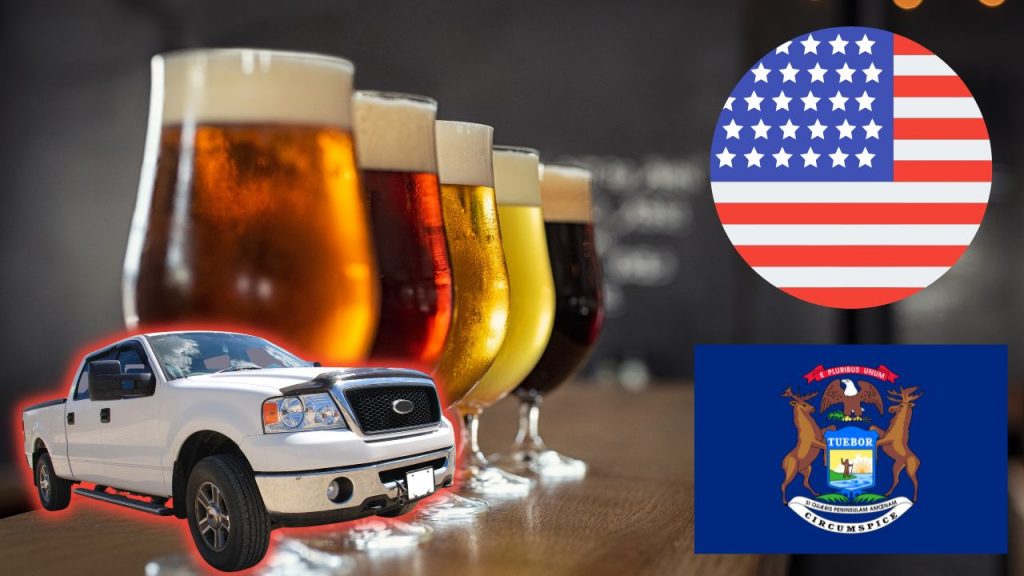
Driving with a high blood alcohol content (BAC) poses significant risks not only to the driver but also to others on the road. In Michigan, there are several smart and convenient alternatives to driving under the influence, ensuring that you can enjoy your social events without compromising safety. Here are practical recommendations to avoid driving with a high BAC:
Utilize Rideshare Apps or Local Taxi Services
One of the simplest ways to avoid driving after drinking is to use rideshare apps like Uber or Lyft. These apps offer a convenient and reliable way to get home safely, with just a few taps on your smartphone. Additionally, for those who prefer traditional taxi services, there are local options available. In Detroit, for instance, you can rely on the Detroit Metro Airport Taxi Service for safe transportation. Similarly, in Grand Rapids, Excel Taxi Service offers reliable rides. These services are not only dependable but also readily available to take you home safely after a night out.
Order a Designated Driver Service
If you find yourself in a situation where you’ve driven to a location and consumed alcohol, leaving your car behind might not seem like an appealing option. Fortunately, designated driver services offer a solution. By ordering a designated driver service, such as Designated Driver Service in Detroit or Grand Rapids Car Service in Grand Rapids, you can get both yourself and your car home safely. These services send a driver to your location who will then drive your car, with you as a passenger, back to your home. It’s a convenient way to avoid leaving your car unattended or risking driving with a high BAC.
To find a designated driver service in your area, a quick online search for “designated driver service” followed by the name of your city should provide you with several options.
By opting for a rideshare app, a local taxi service, or a designated driver service, you can ensure that you enjoy your night out without putting yourself or others at risk on the road. These alternatives are not only a responsible choice but also a testament to the variety of options available to Michigan residents aiming to prevent drunk driving. Always plan ahead and choose the safest option for your return home.
Sticking to DUI Laws in Michigan: Sad Statistics
In Michigan, driving under the influence (DUI), also known as operating while intoxicated (OWI), is illegal. This includes driving with a substance-impaired ability. In 2020, Michigan reported 1,084 fatal car accidents, with 28% involving alcohol-impaired drivers with BAC levels over 0.08% and 19% with levels over 0.15%.
Michigan tracks drunk driving cases by county and enforces DUI laws to curb intoxicated driving. Before driving, ensure your BAC is within legal limits using an alcohol breathalyzer, or opt for safer alternatives like cabs, Uber, or designated driver services.
Stay informed on DUI laws by visiting the Michigan State of Police website. Remember, driving impaired by alcohol significantly reduces your control over the vehicle and increases the risk of accidents. Always consider alternate transportation if you’ve consumed alcohol, to ensure you and others’ safety on the road.

